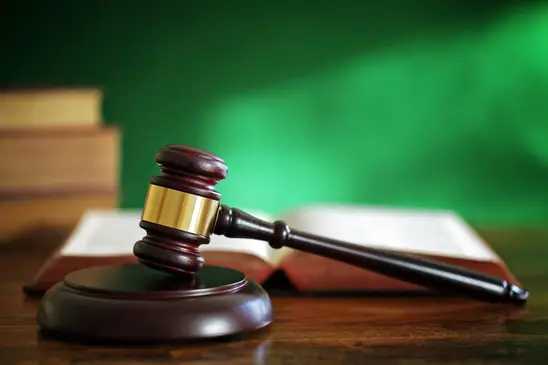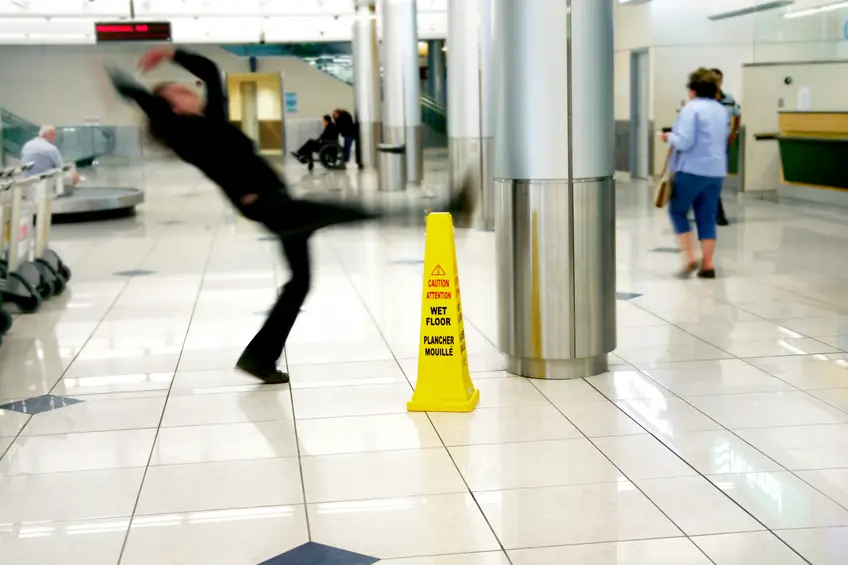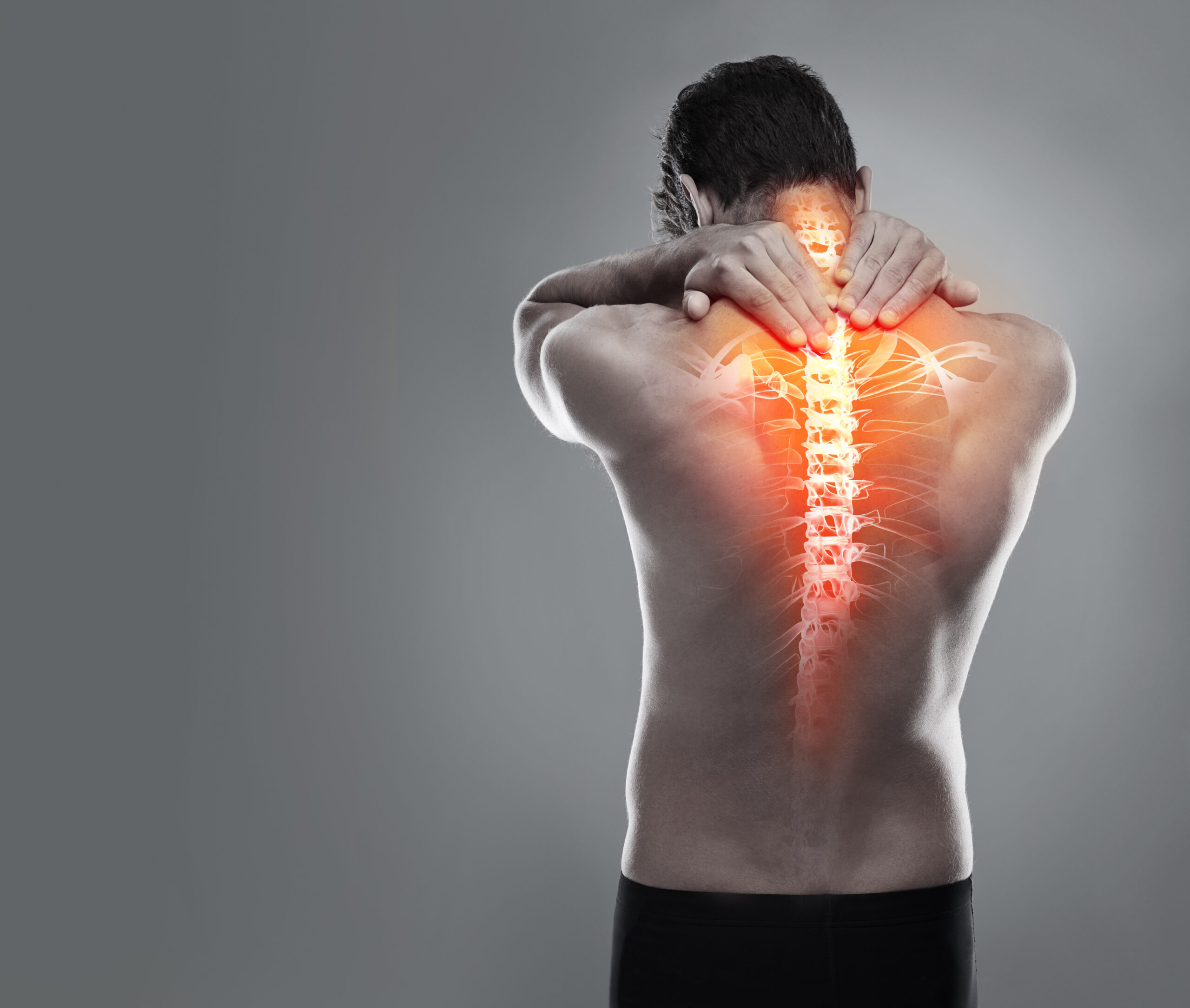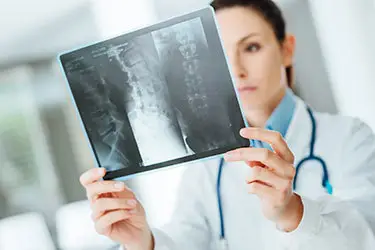Spinal Cord Injury Attorneys Philadelphia, PA
At the PhillyLaw law firm, we specialize in personal injury cases, and in particular, spinal cord injury cases. Our team of dedicated spinal cord injury attorneys understands the profound impact such injuries can have on your life and the lives of your loved ones. With years of experience in spinal cord injury lawsuits, we are committed to fighting for the justice and compensation you deserve for catastrophic injuries like spinal injuries or head injuries. If you or a loved one has suffered life-changing injuries, specifically, a spinal cord injury, contact a Philadelphia spinal cord injury lawyer at PhillyLaw for a free consultation to learn more about your ability to recover financial compensation.
Understanding Whether You Have a Personal Injury Claim for a Spinal Cord Injury
Recognizing whether you have a viable personal injury claim for a spinal cord injury is a crucial first step toward seeking justice and compensation. Typically, spinal cord injury cases are grounded in the principle of negligence, meaning that another party’s failure to act with reasonable care led to your injury. Examples of such circumstances include automobile accidents, slip-and-falls, sports injuries, or incidents where safety regulations were neglected.
To establish a strong case, it’s essential to demonstrate that the negligent party owed a duty of care, breached that duty, and directly caused your spinal cord injury, resulting in significant damages. These damages in spinal cord injury cases might encompass medical bills, loss of income, pain and suffering, and a diminished quality of life. At the PhillyLaw law firm, our skilled spinal cord injury lawyers are adept at navigating the complexities of personal injury law, offering personalized advice on the viability of your spinal cord injury claim and the steps to take toward a positive outcome. Contact a Philadelphia spinal cord injury lawyer at PhillyLaw for a free consultation to understand your options to recover financial compensation for your spinal injuries.
Proving Negligence in a Spinal Cord Injury Case
Proving negligence in a spinal cord injury case is pivotal to securing the compensation you deserve. This process involves four key elements:
- Duty of Care: Initially, it must be shown that the defendant owed you a duty of care. This could be a motorist’s duty to drive safely, a property owner’s duty to maintain a safe environment, or a manufacturer’s duty to produce safe products.
- Breach of Duty: Next, evidence must be presented to demonstrate that the defendant failed to uphold their duty of care. This breach could manifest in various forms, such as distracted driving, failure to address known hazards on a property, or the production of a defective product.
- Causation: A direct link between the defendant’s breach of duty and your spinal cord injury must be established to prove negligence in spinal cord injury lawsuits. This involves proving that your injury would not have occurred but for the defendant’s negligence.
- Damages: Finally, you must prove that you suffered actual damages as a result of the spinal cord injury. This can include medical bills, lost wages, pain and suffering, and other losses.
At the PhillyLaw law firm, our experienced spinal cord injury attorneys utilize a comprehensive approach to gathering evidence, consulting medical experts, and leveraging legal strategies to substantiate each of these elements. Our commitment is to meticulously build your case to prove negligence and advocate for the maximum compensation you are entitled to in your personal injury lawsuit. Contact us for a free consultation with a Philadelphia spinal cord injury lawyer at PhillyLaw to learn your options to recover compensation through a personal injury case.
Filing a Lawsuit in Pennsylvania for a Spinal Cord Injury
When considering filing a spinal cord injury lawsuit in Pennsylvania for a spinal cord injury claim, it is essential to be aware of the state-specific legal nuances and statutory requirements. Having an experienced personal injury lawyer from PhillyLaw with extensive experience in spinal cord injury lawsuits will ensure that you are protecting your right to recover for your personal injury.
Statute of Limitations for Spinal Cord Injury Lawsuits
Pennsylvania law stipulates time limits for filing personal injury lawsuits, known as the statute of limitations. Specifically, spinal cord injury victims have two years from the date of the injury to initiate a spinal cord injury lawsuit. Failing to file within this timeframe may result in the permanent loss of the right to seek compensation for your injuries and damages. Contact a Philadelphia spinal cord injury lawyer at PhillyLaw as soon as possible after the incident that caused your spinal cord injury to ensure you are protecting your option to file a spinal cord injury lawsuit.
Pennsylvania’s Comparative Negligence Rule
Pennsylvania operates under a comparative negligence rule. This means that if you are found to be partially at fault for the accident that caused your spinal cord injury, your compensation may be reduced by your percentage of fault. However, as long as your share of the blame is less than 51%, you are still entitled to recover damages for your personal injury, albeit adjusted for your degree of fault.
Personal Injury Lawyers Help Navigate Defense Strategies
An experienced personal injury lawyer will prepare for the defense strategies that might be employed by the opposing side. They may attempt to minimize their liability by shifting blame or questioning the severity of your injuries. Therefore, having a thorough and well-documented case is crucial for countering such tactics.

Personal Injury Lawyers Will Negotiate with Insurance Companies
Personal injury lawyers play a crucial role in negotiations with your insurance company or the other insurance company on behalf of spinal cord injury victims during a spinal cord injury lawsuit. These negotiations are often complex and fraught with challenges, as insurance companies typically aim to minimize their payouts. Skilled attorneys understand the tactics employed by insurance adjusters and are adept at countering these strategies to ensure their clients receive the maximum compensation possible. They meticulously review all aspects of the case, from medical expenses and lost wages to potential future costs and non-economic damages like pain and suffering. By leveraging their legal expertise and negotiation skills, a Philadelphia spinal cord injury lawyer at PhillyLaw will strive to secure a fair and just settlement, allowing victims to focus on their recovery and rehabilitation of their spinal injury without the added stress of financial uncertainty.
With the complexities of Pennsylvania’s legal system, having the support of a knowledgeable Philadelphia spinal cord injury lawyer is invaluable. At the PhillyLaw law firm, our spinal cord injury lawyers specialize in spinal cord injury cases and are well-versed in the specific legal landscape of Pennsylvania and the personal injury lawsuits that arise. We dedicate ourselves to guiding spinal cord injury victims through the legal process, from preparing your spinal cord injury lawsuit to representing you in court, if necessary. Contact PhillyLaw for a free consultation from a Philadelphia spinal cord injury lawyer to discuss the specifics of your situation and how we can assist you in navigating the legal path toward recovering the compensation you deserve.
Understanding Spinal Cord Injuries
A spinal cord injury (SCI) occurs when there is damage to the spinal column that results in a loss of function, such as mobility or sensation. The spinal cord is a crucial part of the nervous system that runs down from the brain through the spine, carrying signals that control the body’s movements and sensations. Injuries can range from temporary bruising to permanent damage, potentially leading to paralysis in the most severe cases. These injuries are often caused by accidents, falls, violence, or diseases that affect the spine’s ability to transmit nerve signals. Understanding the complexities and the potential for life-altering changes that come with spinal cord injuries is essential for proper legal representation.
How Do Spinal Cord Injuries Occur?
Spinal cord injuries primarily occur due to a sudden, traumatic blow to the spine that fractures, dislocates, crushes, or compresses one or more of the vertebrae. Common causes of a spinal cord injury include motor vehicle accidents, falls, medical malpractice, sports injuries, workplace accidents, and acts of violence.
Motor Vehicle Accidents
The most common incidents leading to a spinal cord injury include motor vehicle accidents, which are the leading cause of spinal cord injuries worldwide, particularly affecting young adults. Motor vehicle accidents exert immense force upon the human body, often resulting in severe injuries, including those to the spinal cord. During a motor vehicle accident, the rapid deceleration and impact can cause the body to be jerked violently, leading to a significant trauma on the spine. This sudden force can fracture, dislocate, compress, or even sever the vertebrae, which can in turn damage the spinal cord nestled within.
A spinal cord injury from a motor vehicle accident may vary in severity, from causing temporary bruising and swelling that impacts nerve function to more dire situations where the spinal cord is permanently damaged, potentially resulting in paralysis. Since the spinal cord plays a vital role in transmitting signals between the brain and the rest of the body, any disruption in this communication pathway can have profound and lasting effects on an individual’s motor functions and sensory capabilities.

Falls
A fall, especially in individuals over the age of 65, represents the second most common cause of a spinal cord injury. Falls can be particularly hazardous, leading to severe spinal cord injuries, especially among the elderly or those working in high-risk environments. When a person falls from a significant height or even trips and falls awkwardly, the sudden and forceful impact can place immense stress on the spine. This can result in fractures, dislocations, or crush injuries to the vertebrae, directly affecting the spinal cord nestled within. In more serious cases, the force exerted on the spine during a fall can cause the vertebrae to penetrate or compress the spinal cord, leading to permanent damage. The nature of the fall, the height from which the individual falls, and the surface they land on can all influence the severity of the injury. In the elderly, even a fall from a standing position can be enough to cause significant spinal cord damage due to the decreased bone density and the fragility of their vertebrae.
Medical Malpractice
Medical malpractice is another potential cause of spinal cord injuries, though not as common as accidents or falls, it can be just as devastating. These injuries can occur during surgical procedures that involve the spine or the spinal cord. Surgeons and medical professionals are required to adhere to a high standard of care when operating near such a crucial part of the nervous system. However, errors, such as an accidental cut to the spinal cord, improper placement of surgical instruments, or failure to properly manage a patient’s response to anesthesia, can lead to permanent damage. Additionally, misdiagnosis or delayed diagnosis of conditions that affect the spine, such as tumors or infections, can allow these conditions to progress to a point where they cause irreversible harm to the spinal cord. Victims of medical malpractice resulting in a spinal cord injury may face lifelong challenges, including loss of mobility, sensation, and independence, hence the necessity for skilled legal representation to secure deserved compensation and support for such profound impacts on their lives.
Sports Injuries
Sports and recreational activities account for a significant number of spinal cord injuries annually, highlighting a critical area of concern for athletes and fitness enthusiasts alike. These injuries often result from high-impact sports such as football, rugby, and wrestling, or activities associated with sudden falls or collisions, including skiing, gymnastics, and cheerleading. The intense physical nature of these sports can place athletes at a heightened risk of experiencing severe trauma to the spine through direct impacts, awkward falls, or abrupt twists that exceed the spine’s capacity for stress.
Workplace Accidents
Workplace accidents also serve as a significant source of spinal cord injuries, particularly in industries that require physical labor or involve hazardous working conditions. Construction sites, manufacturing plants, and warehouses are notorious for the risks they pose to employees, from falls from heights to incidents involving heavy machinery. When safety protocols are not strictly followed or when equipment is improperly maintained, the likelihood of accidents increases dramatically. For instance, a worker may suffer a spinal cord injury from being struck by falling objects, getting caught between equipment, or slipping and tripping on unsafe surfaces. These serious injuries not only impact the physical well-being of the worker but also introduce financial and emotional strains due to potential long-term disabilities and the inability to return to work. Establishing stringent safety measures and adhering to them can mitigate the risk of such devastating injuries in the workplace, highlighting the critical role of employer responsibility in safeguarding their employees’ health.
Acts of Violence
Acts of violence, including gunshots and stabbings, along with sports and recreation injuries, are also significant contributors to the incidence of spinal cord injuries. These events underline the critical need for preventive measures, safety protocols, and public awareness to mitigate the risks associated with spinal cord injuries.
Types of Spinal Cord Injuries
Spinal cord injuries can be classified into two main categories: complete and incomplete.
Complete Spinal Cord Injuries
A complete spinal cord injury results in the total loss of sensation and motor function below the level of injury, essentially cutting off communication between the brain and the body parts affected. This can lead to paralysis, either as paraplegia, which is paralysis of the legs and lower body, or quadriplegia, which is paralysis of all four limbs.
Incomplete Spinal Cord Injuries
An incomplete spinal cord injury does not sever all communication between the brain and the body parts below the injury level. Individuals with incomplete injuries may retain some motor or sensory functions and have a varying degree of impairment. The specific type of incomplete injury can significantly influence the rehabilitation process and the potential for recovery.
Furthermore, spinal cord injuries are also categorized based on the area of the spine affected, including cervical, thoracic, lumbar, and sacral injuries. Each section controls different parts of the body, and the injury level greatly impacts the resulting complications and the rehabilitation focus. Understanding these types is crucial for medical treatment, legal considerations, and the overall support and recovery process for the injured individuals.
Cervical Spinal Cord Injuries
A cervical spinal cord injury occurs at the neck level and can have the most severe consequences among all spinal cord injury types. The cervical spine comprises seven vertebrae (C1-C7) and is responsible for supporting the head, connecting it to the body, and protecting the uppermost part of the spinal cord. Injuries to this region can result in quadriplegia—paralysis of all four limbs, as well as the torso. Depending on the severity and the specific vertebra affected, the impairment can range from partial to total loss of function and sensation.
Individuals with a cervical spinal cord injury may require extensive medical care, including surgery, rehabilitation therapy, and long-term assistive care. The impact on an individual’s daily life is profound, affecting personal independence and necessitating adaptations for mobility, personal care, and communication. Legally, these injuries often involve significant claims due to the extensive medical costs, potential for ongoing care needs, loss of income, and the profound impact on the quality of life. At PhillyLaw, our attorneys possess a deep understanding of the medical implications and the comprehensive needs of individuals with cervical spinal cord injuries, ensuring we advocate effectively for the full extent of compensation our clients are entitled to.
Thoracic Spinal Cord Injuries
A thoracic spinal cord injury occurs in the mid-back region and involves the twelve thoracic vertebrae (T1-T12). This section of the spine primarily helps support the upper body and is crucial for the stability of the rib cage, which protects vital organs such as the heart and lungs. Injuries to the thoracic spinal cord often result in paraplegia—paralysis of the legs and lower part of the body. The level and severity of the injury determine the extent of impairment and loss of function.
Individuals with a thoracic spinal cord injury may retain use of their arms and hands, enabling them to maintain a degree of independence in daily activities. However, they might require modifications to their living and working environments, alongside the use of mobility aids such as wheelchairs. Rehabilitation focuses on maximizing remaining functions, enhancing mobility, and adapting to lifestyle changes.
From a legal perspective, thoracic spinal cord injuries can lead to significant claims due to the drastic alteration in the injured person’s lifestyle, the need for ongoing medical care, modifications to living spaces, and potential loss of earnings. At PhillyLaw, our experienced attorneys are committed to understanding the unique challenges faced by individuals with thoracic spinal cord injuries. We strive to ensure they receive the comprehensive compensation necessary to cover medical expenses, rehabilitation, and adjustments required for a changed way of life, alongside compensation for emotional distress and lost earning potential.
Lumbar Spinal Cord Injuries
A lumbar spinal cord injury involves the lower back region, particularly affecting the five lumbar vertebrae (L1-L5). This segment of the spine bears a significant amount of the body’s weight and is crucial for movement functions such as bending, twisting, and walking. Injuries to the lumbar region can result in varying degrees of paralysis in the hips and legs, commonly referred to as paraplegia, depending on the severity and the specific location of the injury. Additionally, individuals may experience loss of function in the lower parts of the body, including the bladder and bowel control, which necessitates learning new ways to manage these essential functions.
People who sustain lumbar spinal cord injuries often undergo extensive rehabilitation that emphasizes not only physical recovery but also adapting to life with a disability. Rehabilitation aims to enhance muscle strength, improve mobility with or without assistive devices, and facilitate independence in daily activities. From an architectural standpoint, living and working spaces may require modifications to accommodate wheelchair access and other mobility aids.
Legally, cases involving lumbar spinal cord injuries require a comprehensive understanding of the long-term impacts, including the cost of medical care, rehabilitation, necessary modifications to the living environment, and, importantly, the potential for lost wages and reduced earning capacity. At PhillyLaw, our attorneys are dedicated to ensuring that individuals with lumbar spinal cord injuries receive the full compensation they deserve, reflecting not only the physical and emotional toll but also the financial implications of adapting to a significantly altered lifestyle.
Sacral Spinal Cord Injuries
A sacral spinal cord injury impacts the sacral region, located at the bottom of the spine, comprising five sacral vertebrae (S1-S5). This section of the spine plays a vital role in connecting the spine to the hip bones, supporting the weight of the upper body when sitting, and controlling some functions of the lower extremities, including the thighs, lower legs, feet, and genital organs. Injuries to the sacral region can lead to loss of movement and sensation in the hips and legs, sexual dysfunction, and loss of bowel and bladder control, depending on the severity of the damage.
Individuals with sacral spinal cord injuries may face challenges in mobility and require adaptations in their personal care routines. Rehabilitation efforts focus on maximizing independence, managing bladder and bowel control, and addressing sexual health concerns. The impact of sacral spinal cord injuries extends into personal and social dimensions, affecting relationships, self-esteem, and emotional well-being.
From a legal perspective, sacral spinal cord injuries necessitate a nuanced understanding of the implications for the individual’s quality of life, potential for medical complications, and the need for specialized care and adaptations. At PhillyLaw, our attorneys are adept at navigating the complexities of sacral spinal cord injury cases, ensuring that our clients are adequately compensated for their medical expenses, rehabilitation costs, modifications to living spaces, loss of income, as well as pain and suffering. We advocate tirelessly for the rights of individuals with sacral spinal cord injuries, seeking justice and support to aid in their recovery and adaptation to a new way of life.
Symptoms of Spinal Cord Injuries
Identifying the symptoms of spinal cord injuries promptly can significantly influence the outcome of an individual’s recovery process. The symptoms can range from mild to severe, depending on the extent of the injury and its location on the spine. Common symptoms include loss of movement, loss of sensation (including the ability to feel heat, cold, and touch), exaggerated reflex activities or spasms, changes in sexual function, sensitivity, or fertility, pain or an intense stinging sensation caused by nerve damage, and difficulty in breathing, coughing, or clearing secretions from your lungs.
Immediate symptoms may also involve paralysis or weakness, incoordination, and numbness or tingling in the hands, fingers, feet, or toes. Emergency signs necessitating prompt medical attention include extreme back pain or pressure in the neck, head, or back, weakness, incoordination, or paralysis in any part of the body, numbness, tingling, or loss of sensation in the hands, fingers, feet, or toes, difficulty with balance and walking, impaired breathing after injury, and an oddly positioned or twisted neck or back.
Understanding these symptoms is crucial for anyone who may have experienced a traumatic event leading to potential spinal injury, as timely medical intervention can prevent further damage and improve long-term outcomes.
Treatment for Spinal Cord Injury Victims
Treatment for spinal cord injury victims encompasses a multidisciplinary approach aimed at minimizing the effects of the injury and facilitating recovery to the greatest extent possible, hopefully rehabilitating the spinal cord injury victim to complete recovery. Immediately after a spinal cord injury, the primary focus is on stabilizing the patient’s vitals, preventing further damage to the spinal cord, and managing acute symptoms. This may include surgical interventions to remove fragments of bone, herniated disks, or foreign objects compressing the spinal cord, as well as stabilizing the spine to prevent future injuries. Therefore it is critical that a spinal cord injury victim seek immediate medical attention after the incident.
In the aftermath of acute treatment, rehabilitation through physical therapy plays a crucial role in the recovery process for the injured person. A team of specialists, including physical therapists, occupational therapists, psychologists, and rehabilitation nurses, work closely with the patient. This team focuses on enhancing muscle strength, improving fine motor skills, and developing strategies to compensate for any permanent loss of function. The goal of physical therapy is to help individuals regain as much independence as possible, allowing them to lead productive and fulfilling lives despite their injuries.
Additionally, ongoing medical treatment and support are vital for addressing secondary conditions that may arise, such as bladder and bowel dysfunction, respiratory complications, and susceptibility to pressure sores. Advancements in medical research continue to offer new insights and potential treatments for spinal cord injury, including experimental procedures like stem cell therapy and nerve regeneration techniques, holding promise for future breakthroughs in spinal cord injury recovery.
Support groups and psychological counseling are also beneficial, offering emotional support and practical advice to individuals and their families, helping them adjust to new challenges, and promoting mental and emotional well-being.
It’s essential for spinal cord injury victims to have access to comprehensive care and support systems that address their physical, emotional, and social needs, underscoring the importance of specialized legal representation to secure the resources necessary for their long-term care and recovery.
The PhillyLaw Spinal Cord Injury Lawyers are Committed to Helping You Recover Financial Compensation for Your Spinal Cord Injury
PhillyLaw’s spinal cord injury lawyers are deeply committed to helping spinal cord injury victims on their path to recovery. Understanding that each client’s situation is unique, the spinal cord injury lawyers at the PhillyLaw law firm approach every case with compassion, dedication, and a tailored strategy aimed at securing the best possible outcome. We believe in fighting relentlessly for the rights of our clients to ensure they receive the compensation they deserve for medical treatment, rehabilitation, and any necessary lifestyle adjustments. Our commitment extends beyond the courtroom and spinal cord injury lawsuits, as we strive to advocate for broader changes that improve safety standards and prevent future spinal cord injuries. At the PhillyLaw law firm, we are more than spinal cord injury lawyers; we are steadfast allies to spinal cord injury victims and their families, dedicated to supporting them through every step of their recovery and legal journey. Contact our offices today for a free consultation.




